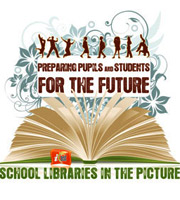From the UNESCO site comes the following report from the IASL 2009 conference:
11-09-2009 (Padua)UNESCO participated in the 38th Annual Conference of the International Association of School Librarianship (IASL), which concluded last week in Padua, Italy. This year’s theme, School Libraries in the Picture: Preparing Pupils and Students for the Future, highlighted the increasingly important role of school libraries to equip students in the 21st century with the abilities to use information effectively and develop critical thinking and life-long learning skills that are essential to responsible citizenship.While the significant contributions of school libraries to student learning have been demonstrated over the years, in the rapidly changing and competitive environment of the 21st century, the role of school libraries has shifted from one of technical work to intermediation, from conservation to innovation, and from reactive user-trainer modes to proactive teacher-trainer modes.IASL is a professional association that provides an international forum for those interested in promoting effective school library programmes as viable instruments in the educational process.This was the main theme of this year’s Conference of the International Association of School Librarianship that gathered more than 300 school librarians, teachers, library advisers, educational administrators, students and others who are responsible for library and information services in educational institutes from around the world.
School librarians will therefore be increasingly contributing to UNESCO’s mandate for building knowledge societies. In particular school libraries will play a key role as catalysts for the introduction of media and information literacy policies in schools by engaging both students and teachers to acquire a combination of skills, competencies, knowledge, attitudes and behaviours.
The topics discussed at the Conference are closely connected with UNESCO’s work on a teacher-training curriculum for media and information literacy to be introduced worldwide. The curriculum aims to integrate media education and information literacy in the initial training of teachers at secondary school levels, and will be designed according to the needs of each country.

